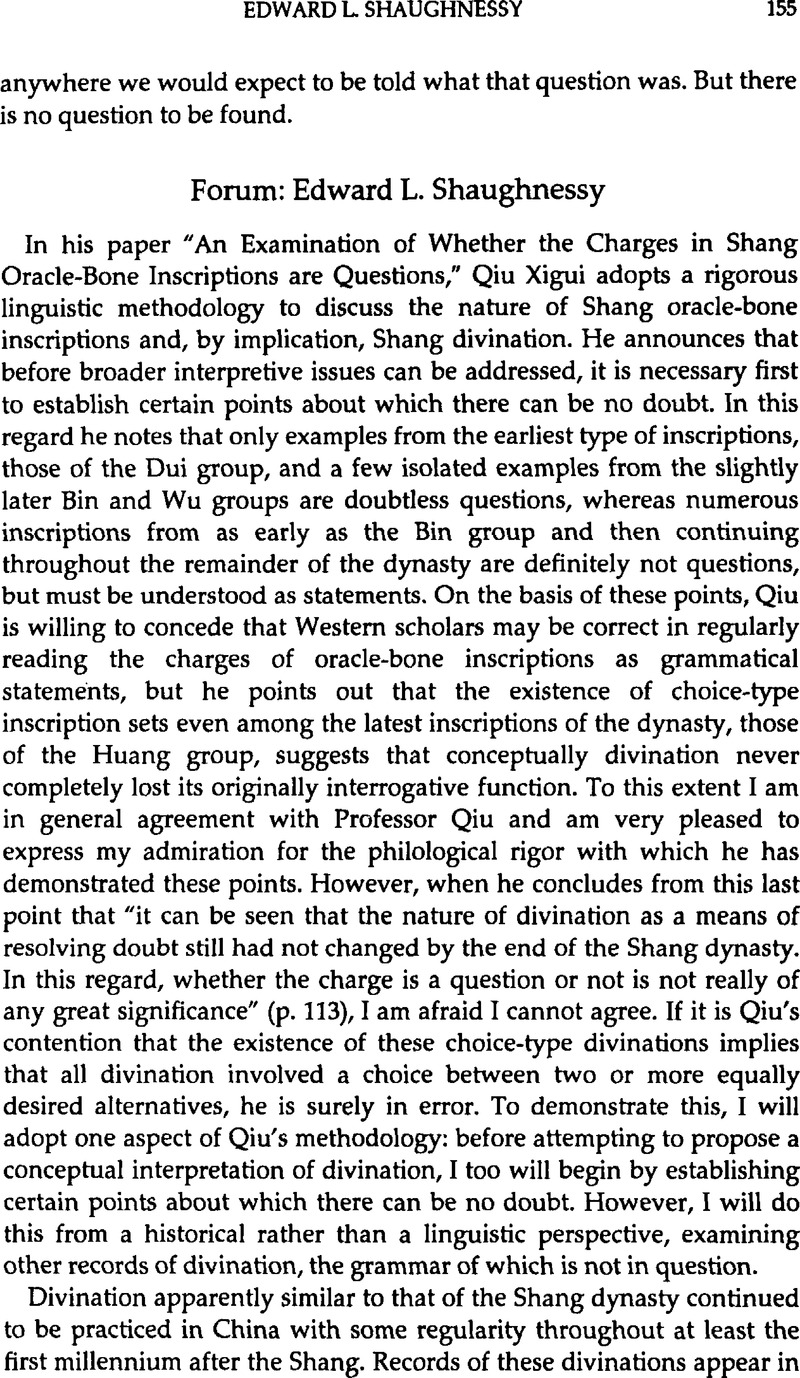Published online by Cambridge University Press: 26 March 2015

26. Shaughnessy, “The Composition of the Zhouyi,” 79-80. I should mention that my discussion there is based in part on Keightley, “Shih cheng,” 14-16.
27. See
Zoneyi, Rao (Tsung-i, Jao), “Yindai Yigua ji youguan zhanbu zhu wenti” ![]() , Wenshi
, Wenshi
![]() 20 (1983), 7
Google Scholar.
20 (1983), 7
Google Scholar.
28. A particularly interesting parallel for this use of shang as a verbal complement to introduce a wish or intention is found in the Mu tianzi zhuan
![]() (3.1a), which records a ditty (yao
(3.1a), which records a ditty (yao
![]() ) purportedly sung by the Queen Mother of the West
) purportedly sung by the Queen Mother of the West ![]() to King Mu of Zhou
to King Mu of Zhou ![]() .
.
![]() .
.
![]() .
.
![]() .
.
White clouds in the sky,
The mountain peaks extrude from them;
The roads are long,
The mountains and rivers separate them.
Please that you do not die,
Would that you can come again.
While this is not properly the record of a divination, a connection is generally recognized between “ditties” such as this and divination statements (zhou
![]() ) in the Book of Changes tradition; on this point, see Shaughnessy, “The Composition of the Zhouyi,” 97ff.
) in the Book of Changes tradition; on this point, see Shaughnessy, “The Composition of the Zhouyi,” 97ff.
29. In fact, one other complete record of divination in the Zuozhuan, this one using milfoil and the Zhouyi
![]() , suggests that even in choice-type divinations the charge was stated in the same way as in the other cases and that one alternative was probably favored. In the chronicle for the seventh year of Duke Zhao (535 B.C.), it is said that Duke Xiang
, suggests that even in choice-type divinations the charge was stated in the same way as in the other cases and that one alternative was probably favored. In the chronicle for the seventh year of Duke Zhao (535 B.C.), it is said that Duke Xiang ![]() of Wei
of Wei ![]() divined in order to determine which of his two sons, Yuan
divined in order to determine which of his two sons, Yuan ![]() , the younger and clearly the favorite, or Zhi
, the younger and clearly the favorite, or Zhi ![]() , the elder but a son who was crippled, should succeed him. The charges of the two separate divinations read:
, the elder but a son who was crippled, should succeed him. The charges of the two separate divinations read:
![]() .
.
Would that Yuan enjoy the state of Wei and preside over its altars.
![]() .
.
I wish to establish Zhi; would that he be capable of enjoying it.
This choice is not proposed as a single question, but rather as two positive statements. Moreover, the prognostication, by which the younger son was indeed selected as the heir, suggests that even in this case there was a strong intentional aspect to the divination.
30. Shaughnessy, “The Composition of the Zhouyi,” 57-59; Xia Hanyi, “Shilun Zhouyuan buci xin zi.”